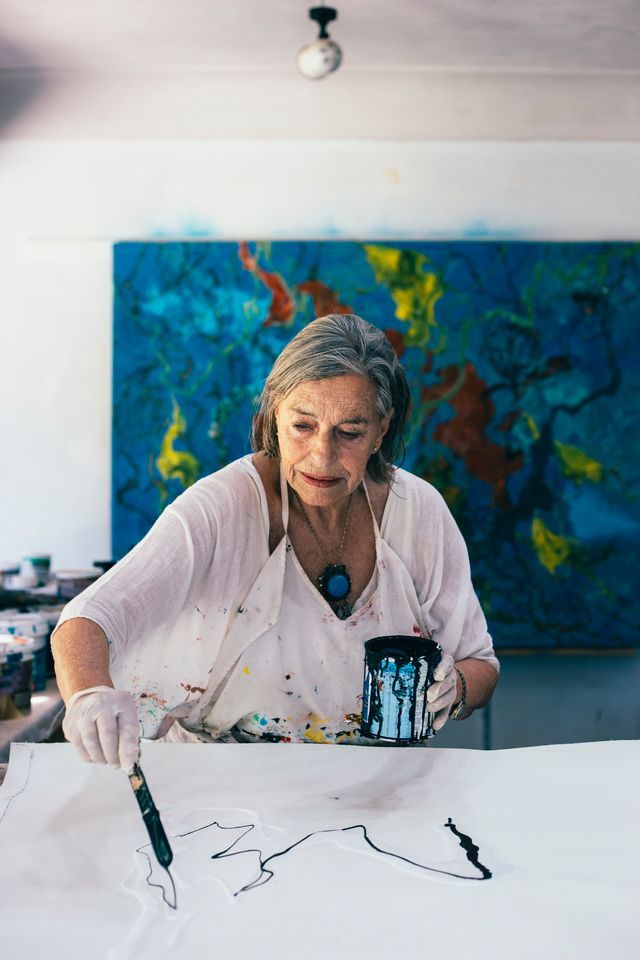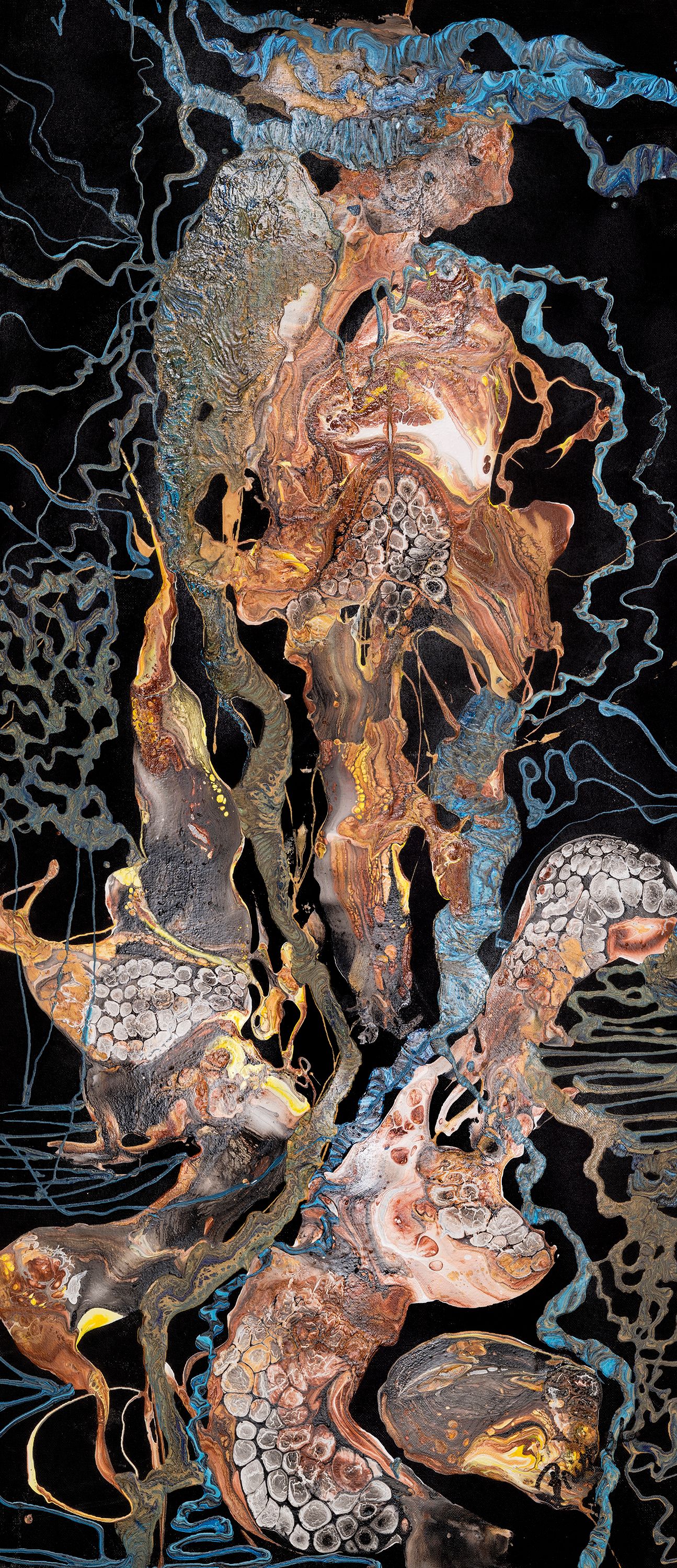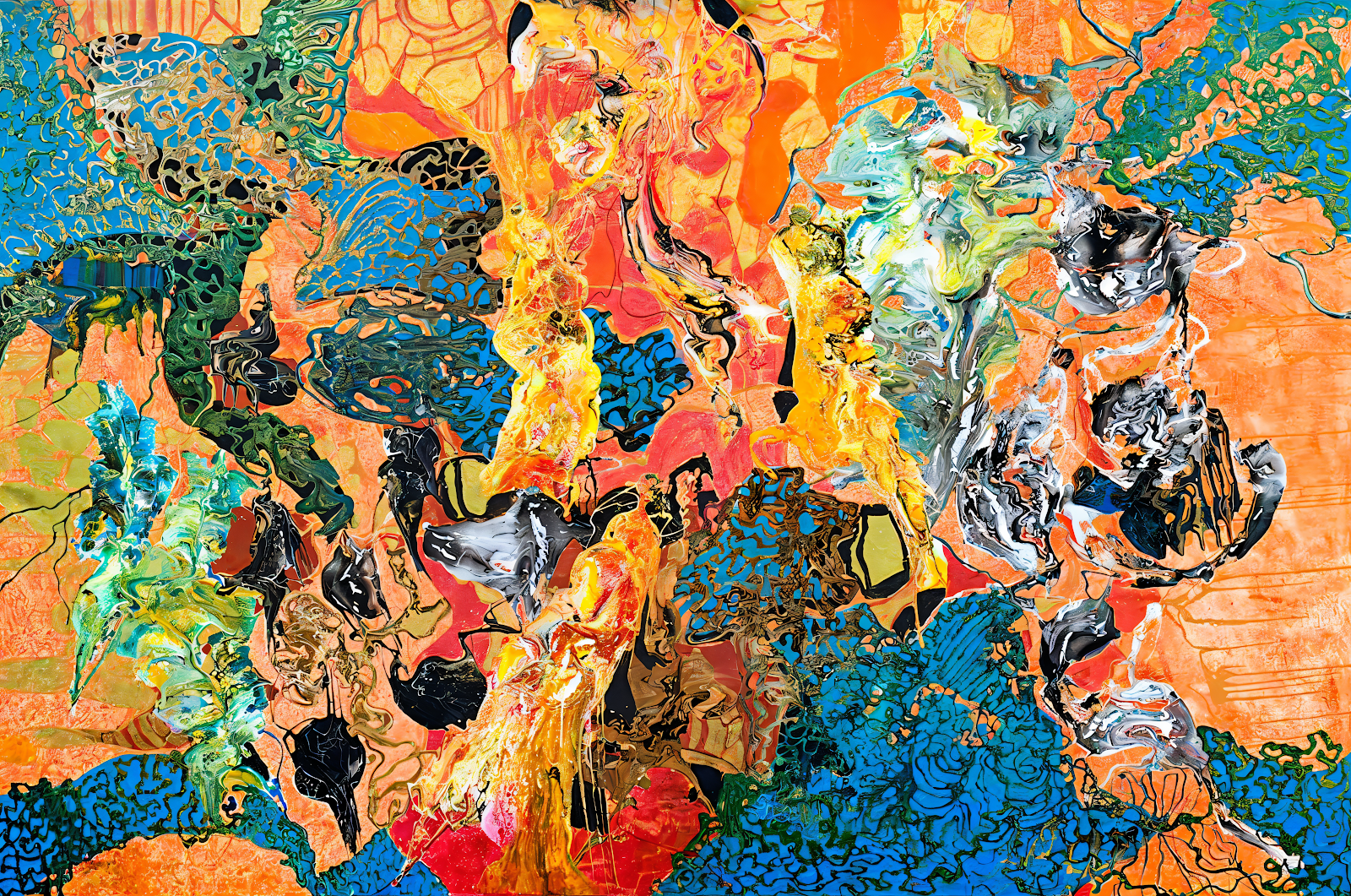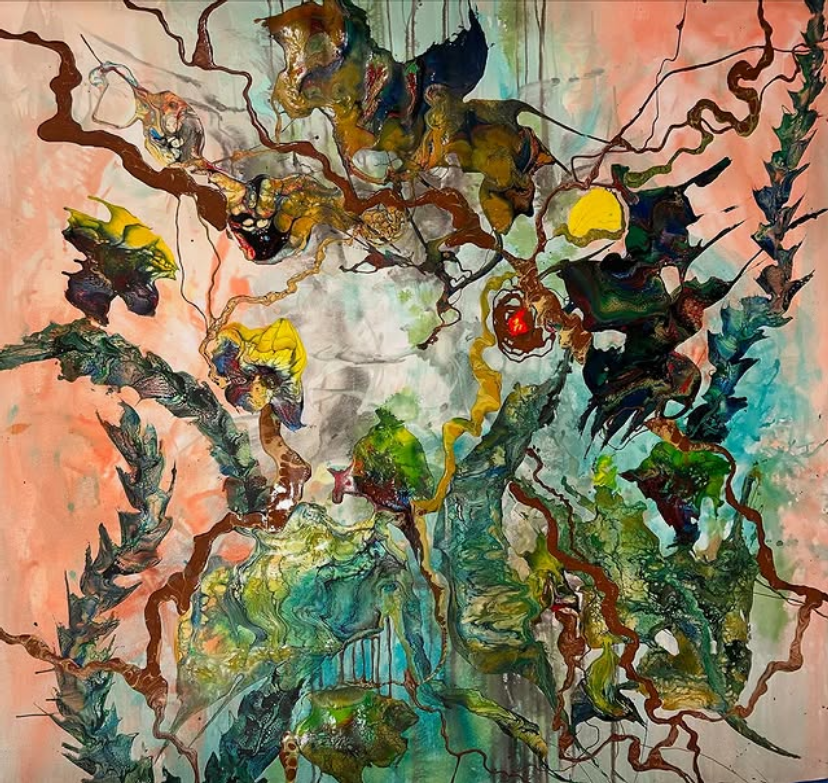
The Norwegian-Egyptian abstract expressionist Britt Boutros Ghali has lived a life defined by radical self-expression and the pursuit of beauty. Born in 1937 in Svolvaer, Norway, her formative years were spent in the shadow of World War II, and it was during long winters in the post-war years that she first found sanctuary and a sense of purpose via the canvas. Over the course of her lifetime, she has built an impressive legacy, producing huge abstract paintings that present a dreamlike dance of spontaneity and structure that have earned her numerous awards, such as the prestigious St. Olav’s Order (Norway’s highest artistic accolade)and a Lifetime Achievement Award for Women in the Arts, presented by the Egyptian government in 2023. Given that the artist has lived in Cairo for the last 50 years, this most recent recognition reflects her profound impact on the artistic landscape of her adopted homeland, where she is a near-legendary figure. In September, Boutros Ghali exhibits in London for the very first time with Varvara Roza Galleries in St James's, London. In this exclusive interview for House Collective Journal, the pioneering 88-year-old artist provides an inspiring insight into her process and the creative drive behind her formidable talent.
How would you describe yourself as an artist?
It’s very difficult to describe myself as an artist; beyond saying that I think I am just a very hardworking person. You have to have passion to make art, and also the discipline to focus and follow through. I am in my studio every single day, and I have been making work for 60 years. It's a long time. I don't wait for inspiration, and I still never plan anything when I approach a blank canvas. I just go to my studio, wipe out all my thoughts, and then just start. I go into a flow, and that flow can last for many, many hours. It’s a form of energy that comes from outside of me and takes over. I look at some of my friends my age and, you know, many of them can hardly walk. But I'm doing these huge canvases.

What is the nature of the energy that takes over?
I don't know. I'm very much an action painter, though. I start painting, and then I just build on and on and on. The wonderful thing is that when you are in that energy, you don't have time to think of politics or society – there is nothing that can disturb you. It is a sort of transcendence. Sometimes I go back and look at a finished work, and I think, wow, did I really do that? You can be deep in the energy and thinking, this is a masterpiece, but the next morning, you will look and think, I could do this one much better, and you begin all over again. I really don't know what this energy is that is driving me, but I can say that at my age, I know don't have so much time, and I feel I really have to use the time I have to paint.
You were born in the shadow of WWII. Do you remember much of your early childhood?
I don't remember the war so much, but I do remember how much we struggled to get back to life after the war. I grew up in Norway, so I was very used to long dark winters, and summers with the sun both day and night. It was a very beautiful, but very harsh place to grow up, and it is an environment that makes you very strong. I mean, as a very young child you would have to bicycle five kilometres in the snow to go to school, and I do think that creates very strong people. I felt the harshness that we had after the war, but in many ways the harshness made me strong and resilient as a person.

How does the vantage point of your age make you view your earlier work?
I have many more layers in my work than I used to have. It's interesting, because my early work was much calmer, and much more serene and, in a sense, dreamy. The energy coming through the work right now is much more powerful. But I think the energy that comes through is reflective of the times we are living in, because we are living in such crazy times.
Why have you always worked in the medium of abstraction?
Because you're so free in abstraction. I live in the moment, and, for me, abstraction is about the moment – it moves you, and is full of so many possibilities. I do believe that what you create in the abstract is unconsciously influenced by what is happening in the world. It comes through you without you really realising it and I believe that we are in an incredibly exciting time right now – it almost feels like we're waiting for something very big to happen.

Is painting tied to a sense of purpose for you?
For me, painting is like life, and I feel that in my life I have to create something beautiful and put it into the world. I also create beautiful surroundings where I live, and I make sure that I have wonderful friends and we eat well. I want things to be beautiful. I don't think these new technologies being used to make art now can give work that kind of beauty, or soul. I have a friend who has recently made a table for me from driftwood, and you can feel the hours and hours he has spent making that table, it is beautiful because it is almost alive.
Is the process of painting more important for you than the finished object?
Yes, I think so. I'm always surprised where it takes me. I let accidents happen in the work sometimes, and I think, oh my God, what have I done? Then I come back to the work and I see that the accident has opened new roads. Whenever I finish one painting, I move it immediately into my showroom, so it doesn't affect my next painting. I'm always alone with my new work. I always want the work to reflect the moment. It is not intellectual, or anything. It is just about a feeling of warmth and love and creating things that you can dream into. As I say, I empty myself completely in my thoughts when I paint and then some sort of energy starts coming, which grows and grows. There are even times when I'm tired, and then all of a sudden I start and then I will then be working for hours. There's something there I don't understand, but I do know that it is very important to hang on to a space for dreaming in life.
Britt Boutos Ghali exhibits for the first time in the UK on from September 25 at Varvara Roza, Gallery 8, St James's London.
Find out more about Britt Boutros Ghali here.
All images untitled, supplied courtesy of the artist.